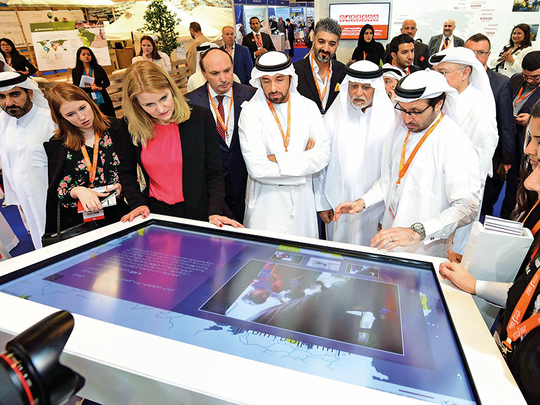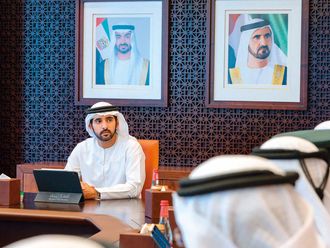
Dubai
The lack of education of children in conflict can lead to lost generations, agreed speakers at the panel discussion on the first day of the Dubai International Humanitarian Aid and Development conference and exhibition (Dihad), taking place at the Dubai World Trade Centre from March 21 to March 22.
During the session ‘How To Better Address The Often-Time Irreparable Damage Caused To Children In Conflict Situations,’ Christos Stylianides, European Commissioner for Humanitarian aid and crisis management pointed out that close to 40 million children around the world are out of schools as result of conflicts.
“Dihad raises awareness about a lot of the gaps in our humanitarian activities. When crisis strikes, children are the first to suffer. Today, over 75 million children are in need of emergency educational support,” he said.
Stylianides referred to two closely-related issues — the protection of children in conflict, and education of children in emergency situations.
“The terror, violence, and displacement of conflict expose boys and girls to trauma and psychological and mental suffering. We need to work on finding ways to assure them they are protected while they are displaced — this should be paramount,” he said.
He further explained the major gap between a beginning of a conflict and the moment children can go back to school. “In many cases this can take years to happen. Investing in education in children in the worse crisis’, is investing in peace and is investing in the future,” said Stylianides.
Sharing the same sentiments, Pierre Kraehenbuhl, Commissioner-General United Nations Relief And Works Agency For Palestine Refugees In The Near East (UNRWA) pointed out people’s tendency to become accustomed to the inevitability of war in a world where crisis’ multiply.
He pointed out that over the last two decades, there has been an over reliance on military intervention and humanitarian response, which has little record of it addressing the roots of the causes of conflict.
The story of Uhoud
Kraehenbuhl, narrated the story of a young Syrian girl called Uhud, whose home was destroyed in the Gaza strip during an air raid in 2014 conflict. “Uhoud was in a coma for seven months, when she woke up, the doctors informed her that her mother and one of her brothers have been killed in the air strike. That is the reality of conflict,” he said.
Described as one of the highest performing students at the UNRWA school, Kraehenbuhl, highlighted the strength and energy Uhoud found in her loss and tragedy through education.
He explained that when humanitarian organisations claim to place people in the centre of their response, they should look at refugees and displaced people as “not only from the perspective of them being victims, but also from the perspective of their abilities to be actors of their own destinies.”
“If any of these girls were standing here today, this is what they would say to you: we know we are refugees, we know we are victims of a historical injustice, but we do not want the world to see us only as that, we want the world to recognise us for out skills, our capacities, and our determination and desire to contribute,” added Kraehenbuhl.












